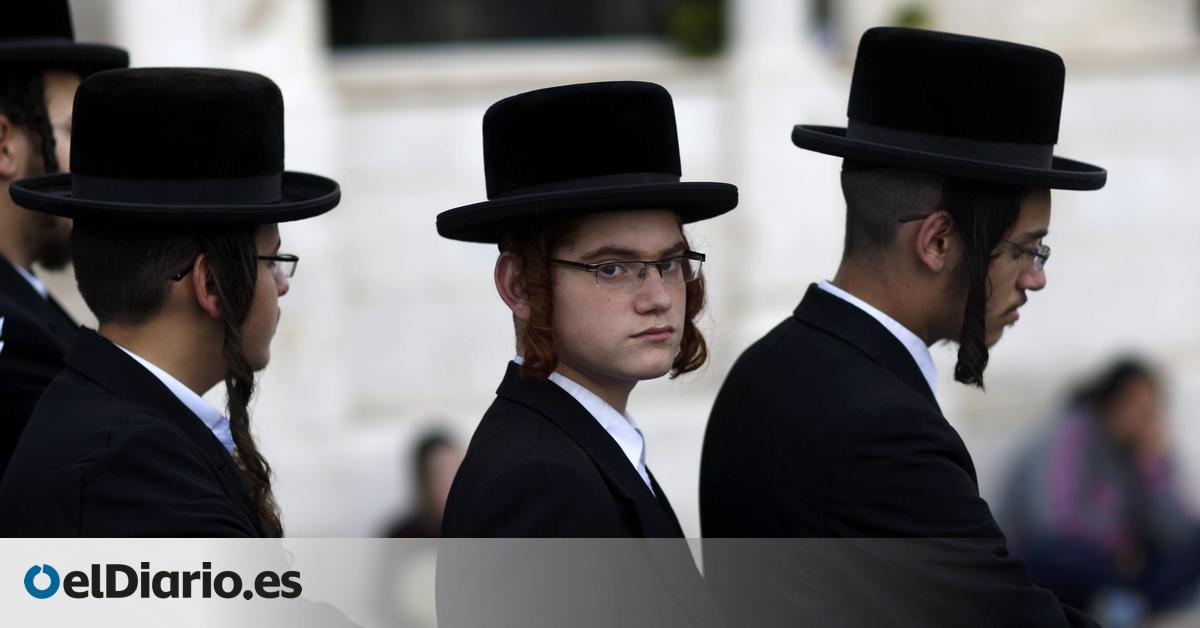
The Israeli Supreme Court unanimously ruled this Tuesday the end of the military exemption for young ultra-Orthodox Jews, a highly controversial measure that has historically divided Israeli society, especially since the current war unleashed by Israel in the Gaza Strip.
The Court decided that “there is no legal basis for excluding ultra-Orthodox men from the draft” and that if they do not serve in the Army they should not receive publicly funded educational and welfare grants.
The ruling, Haaretz newspaper notes, will likely have a significant impact on Prime Minister Benjamin Netanyahu’s ruling coalition.
In February, the Supreme Court heard for the first time appeals against the Government’s decision not to enlist the students of the yeshiva (a center for Torah and Talmud studies generally aimed at men in Orthodox Judaism) in the Israeli military service. Despite the fact that the law that granted them exemptions expired at the end of March. The petitions were presented by Brothers and Sisters in Arms, the Movement for Quality Government in Israel and 240 individuals.
Data provided by the Israeli military ahead of the June hearings shows that the actual number of ultra-Orthodox individuals serving in the military is significantly lower than previously shown in official army figures.
In early June, an expanded nine-judge panel heard petitions on the issue. Due to significant differences with the Attorney General, Gali Baharav-Miara, the Government was represented by two private lawyers.
It is not clear whether this ruling means immediately sending out draft orders for the approximately 67,000 haredi men eligible – the equivalent of five military divisions – for mandatory military service at this time, or will it be a gradual process.
The two ultra-Orthodox parties – Shas and United Torah Judaism (JUT) – are strongly opposed to the recruitment of young Torah scholars and have threatened to abandon Benjamin Netanyahu’s current government coalition if the measure comes into force, putting in their survival is in danger because they provide 18 vital seats.
“There has never been a Supreme Court ruling in favor of yeshiva students and in the interest of the ultra-Orthodox public. There is not a single judge there who understands the value of Torah study and its contribution to the people of Israel,” said one of JUT’s leaders, Rabbi and MP Moshe Gafni, today.
The military exemption for ultra-Orthodox Jews is not a law, but an executive provision that is periodically extended and has existed since the birth of the State of Israel, although there are several court rulings indicating that it violates the principle of equality that governs the basic law. Israeli.
The Israeli Supreme Court began in early June to hear arguments in the case of the military exemption of ultra-Orthodox Jews, who since the formation of the State of Israel can avoid compulsory military service if they study full-time in a Talmudic school (yeshiva), an issue that has caused great divisions in Israeli society and within the government.
At the beginning of April, a temporary rule allowing the exemption to remain expired, and numerous civil society groups have called for an end to the privileges of the ultra-Orthodox, who represent around 13% of Israeli society.
The Executive in this case has been represented by a private lawyer, since the attorney general, Gali Baharav-Miara, has declared against the military exemption, going so far as to declare that the Government acts “without authority” in trying to prevent the recruitment.
After the massive mobilization of some 300,000 reservists for the war in Gaza, which has now lasted almost nine months, in addition to battalions of soldiers both on the northern border with Lebanon and in the occupied territory of the West Bank, many Israelis demand Netanyahu, who all young people in Israel fulfill their military “duty.”
His Government, however, depends on the support of two ultra-Orthodox parties; while members of the conservative Likud (Netanyahu’s party) and the far-right formations within the coalition – Religious Zionism and Jewish Power – are in favor of ending the exemption.
“There is a real national need to extend the service time of standing army soldiers and to extend the service period of reservists. Therefore, we are forced to reach new agreements and make decisions that we have not made in 75 years,” Defense Minister Yoav Gallant (Likud) noted on this issue.
Source: www.eldiario.es

